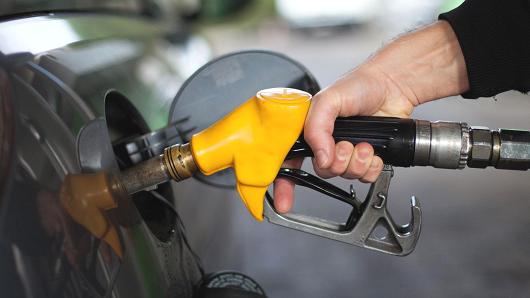US : Gas tax hike ahead?


Gas prices might be heading even higher if a new bill to improve the federal gas tax gains any traction in Washington. The proposal, created by Senators Chris Murphy (D-Connecticut) and Bob Corker (R-Tennessee), is meant to raise $164 billion over 10 years having a 12 cent a gallon gas tax increase. Supporters of transportation spending believe the Highway Trust Fund will run out of money later this summer.
Wisconsinites would begin to see the total gas tax burden within the state rise 23 percent for normal gasoline and 20 percent for diesel. The total tax burden would increase 12 cents to 63 cents per gallon for regular gasoline and to 69 cents for diesel.
The plan also calls for offsetting the tax increases with other tax cuts. Senators asserted might be made by permanently extending six of fifty federal tax breaks that expired this year, however they indicated they’d most probably with other suggestions for offsets.
The plan was immediately embraced by industry and transportation advocacy groups seeking a long-term means to keep your federal Highway Trust Fund solvent. However, it would require a lot of heavy lifting from Congress within the politically charged atmosphere of an election year to pass this type of plan before late August, when the trust fund is forecast to go broke.
Senate Finance Committee Chairman Ron Wyden, D-Ore., has indicated he’s looking for means to shore up the fund for around the following six months while working on a long-term plan. That will move debate on the gas tax increase as well as other revenue-raising scheme until after the midterm elections in November.
Revenue from gas taxes along with other transportation user fees that for many years hasn’t kept pace with promised federal transportation aid promised to states. Individuals are driving less per capita and cars are more fuel efficient, keeping revenues fairly flat. Simultaneously, the cost of construction has increased, and also the nation’s infrastructure is aging, creating greater interest in new and rebuilt roads and bridges.
The before federal gas and diesel taxes were increased was at 1993 as part of plan to reduce the federal budget deficit. Republicans castigated Democrats for that tax increase, also it was a factor in the GOP takeover of the home and Senate the year after.
Since then, lawmakers happen to be unwilling to raise fuel taxes despite calls from the 3 blue-ribbon commissions to do so.
“For too long, Congress has shied away from taking serious action to update our country’s aging infrastructure,” Murphy said inside a statement. “We’re currently facing a transportation crisis that will only worsen if we don’t take bold action to finance the Highway Trust Fund.”
Sen. Tom Carper, D-Delaware, who attempted to boost the gas tax increase in 2010, said he was glad to determine the concept “gaining more bipartisan support.”
Since 2008, Congress has repeatedly dipped into the general treasury for money to help keep the trust fund solvent, sometimes waiting until the government was the verge of reducing payments to states. States have complained that the uncertainty over whether federal aid will be forthcoming has limited their ability to commit to larger projects that take years to organize and construct.
“Congress should be embarrassed that it has played chicken using the Highway Trust Fund and allowed it to become one of the largest budgeting failures in the authorities,” Corker said.
The six expired regulations recognized by the senators as you possibly can offsets for fuel tax increases are a research and development tax credit, certain expensing by small businesses, the state and native florida sales tax deduction, increasing employer-provided transit benefits to the same level as parking benefits, a deduction for spending by teachers on classroom supplies, as well as an increased deduction for land conservation and easement donations.
The anti-tax Club for Growth, which is influential with GOP conservatives, issued an argument opposing the plan. Congress should “devolve highway funding towards the states and allow them to fund their own infrastructure needs,” said Chris Chocola, the group’s president.
